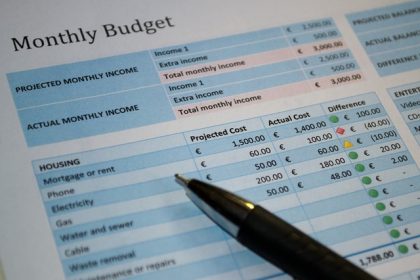Accounting Resources
Discover accounting businesses near you, accounting articles, news, courses and public/private organizations that can help in the area of accounting.
Resource Index » Accounting Resources
FAQs
You need accounting and bookkeeping knowledge or resources to run your business successfully and to increase your profits.
Your bookkeeper will keep your detailed records. Your accountant will set up company financial standards and do the periodic required reporting for the state and federal government. Some of these items include:
- Your tax returns under federal and state laws, including income tax and Social Security laws
- Your request for credit from vendors or a loan from a bank
- Your claims about the business, should you wish to sell it
Additional Resources
Free bookkeeping software for small business
Maintaining a balance sheet is a critical part of managing your business expenses. This information allows you to track important information such as your working capital, income, expenses, and cash flow.
Keep your financial information regularly updated. This will help you to budget for upcoming expenses, plan for your tax liabilities, track sales, and forecast your future revenues.
Accounting and bookkeeping software gives you a convenient way to update your business’s financial information. You can also consider hiring a professional and creating a position within the company for these tasks.
Your business finances should be kept separate from your personal finances. Set up a business bank account, and consider getting a business credit card as well.
You’ll need to establish how your company charges for its goods or services. You might demand payment in full upon purchase, or allow installment payments for more expensive transactions. Another option is to submit an invoice for your services and require payment by a certain date; be aware that this creates a delay that can affect your cash flow.
Consider using electronic or automatic payment options. These can be more convenient for your customers and faster than other types of transactions.
Pricing involves a delicate balancing act. Your prices should be low enough to be competitive, but high enough to generate a profit. Companies typically seek to achieve a 10 percent profit margin when setting their prices.
Consider all the direct and indirect costs in bringing a product or service to market, and conduct market research to see what prices your competitors are offering. You may need to alter the price after it is set, typically raising it to account for inflation or other factors like higher commodities costs.
Your pricing strategy will also determine how much you charge. One option is to offer a product or service at a more economical price level, while another is to set a higher price to cater to a high-end market.
Further reading: How Do I Set Price Levels?
The balance sheet outlines your business’s assets (anything the company can convert into cash, typically on a short-term basis) and liabilities (any financial obligations your company is responsible for). It is also used to determine the shareholders’ equity in the company.
A balance sheet is a useful document for determining what financial resources are available to the company and its current financial standing. This information can be used to address any concerns, such as a buildup of debt.
Further reading: The “Magic” of Financial Statements and Ratio Measurement
The profit and loss statement, also known as the income statement, summarizes all of the business’s income and expenses over a set period of time. It allows you to look at the overall finances of your company or focus on specific segments, such as the performance of certain products or services.
The document gives a view of your company’s financial performance over time, allowing you to evaluate business trends, make comparisons, and forecast finances for the future. It includes a detailed breakdown of factors such as revenue, expenses, cost of goods sold, and gross and net profits.
Further reading: The “Magic” of Financial Statements and Ratio Measurement
Bookkeeping tracks all of your company’s financial transactions, helping you determine where your revenues are coming from and where you’re paying money. It is distinct from accounting, which focuses on certain intervals such as quarterly earnings reports and year-end financial reports.
The process is useful for tracking a variety of financial information, including accounts receivable and accounts payable, loan balances, sales revenues, and available cash.
Further reading: Bookkeeping Basics for Small Business Owners
Accounting Businesses in your Area














